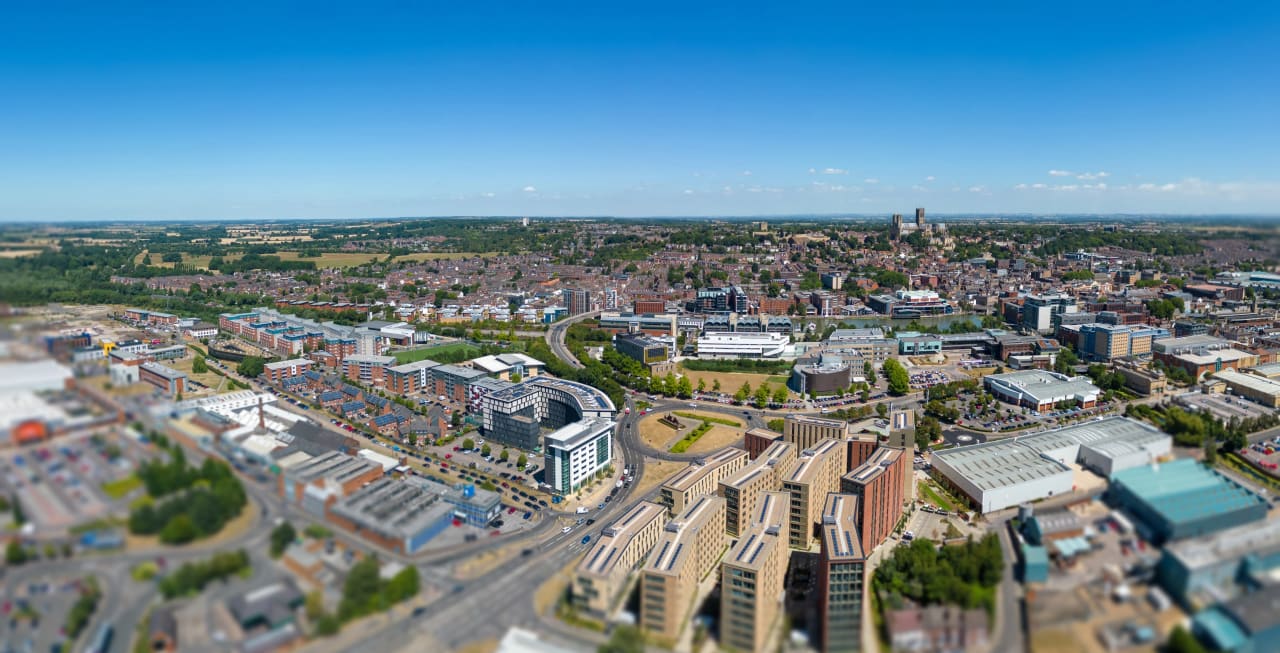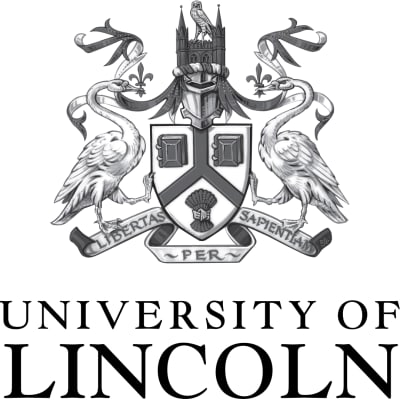
BA (Hons) Politics and Sociology
University of Lincoln

Key Information
Campus location
Lincoln, United Kingdom
Languages
English
Study format
On-Campus
Duration
3 - 6 years
Pace
Full time, Part time
Tuition fees
Request info
Application deadline
Request info *
Earliest start date
Request info
* late applications will be considered if suitable vacancies remain
Discover Lincoln Wherever You Are in the World
Our webinars, subject masterclasses, question and answer sessions, and student panel talks are a great way to discover what it is like to live and study at the University of Lincoln.
Introduction
Domestic and global politics are at the heart of society, and this course provides insight into how political institutions can tackle some of society's most pressing problems.
The BA (Hons) Politics and Sociology degree brings together two complementary disciplines through the study of different aspects of social and political life, offering an insight into the diverse groups and structures that make up society.
The course considers the impact of major social changes, such as demographics and changing family structures, and the influence of different political perspectives on the development of policies to deal with these challenges.
It has been designed to provide students with an understanding of the breadth of topics encompassed under the political agenda, as well as provide a conceptual framework and a range of transferable skills necessary to analyse critically and address a range of contemporary social issues.
"This information was correct at the time of publishing (July 2023)"
Admissions
Curriculum
How You Study
Increasingly, sociological concerns impact the political agenda and the way governments respond to different contemporary social issues, and the interdisciplinary nature of the subjects is reflected in this degree's content.
This degree considers the impact of major social changes, such as demographics and changing family structures, and the influence of different political perspectives on the development of policies to deal with these challenges.
It has been designed to provide students with an understanding of the breadth of topics encompassed under the political agenda, as well as provide a conceptual framework and a range of transferable skills necessary to analyse critically and address a range of contemporary social issues.
This course draws upon the expertise of staff from across the School of Social and Political Sciences, whose research actively informs contemporary academic and public policy debates. Students may have the opportunity to engage with academic research projects being conducted by the School.
First Year
- Applying Research (Social Sciences) (Core)
- Key Social Science Concepts (Core)
- Sociological Imagination (Core)
- Who Runs Britain? Power, Politics and Beyond (Core)
Second Year
- (Re)Reading the Sociological Canon I (Core)
- (Re)reading the Sociological Canon II (Core)
- Comparative Politics and Policy (Core)
- Political Parties (Core)
- Applied Politics (Option)†
- Challenges of European Politics (Option)†
- Conceptualising Sex Work (Option)†
- Crime in Literature (Option)†
- Criminology in the Professions (Option)†
- Debating Welfare States (Option)†
- Foreign Policy Analysis (Option)†
- Governing America (Option)†
- Ideology into Practice (Option)†
- Intelligence and Security Law (Option)†
- Internationalising Cultural Studies (Option)†
- Model United Nations (Option)†
- Nations and Nationalism (Option)†
- Policing Crime and Deviance (Option)†
- Researching in Social Science (Option)†
- Researching Politics and International Relations (Option)†
- Social Engagement (Option)†
- Sociology of Education (Option)†
- Strategic Studies (Option)†
- The Politics of Sex and Sexuality (Option)†
- The Vigilant State: intelligence and national security (Option)†
- Thinking International Relations (Option)†
- Thinking Politics (Option)†
- Transnational Security Studies (Option)†
- Understanding Domestic Abuse (Option)†
- Understanding the City (Option)†
- Welfare Policy and Work (Option)†
- Work and Society (Option)†
- Youth Justice (Option)†
- Youth, Culture and Resistance (Option)†
Third Year
- Contemporary Social Theories and Approaches (Core)
- Global Civil Society (Core)
- Independent Study (Core)
- Analysing the Policy Process (Option)†
- Body Politics (Option)†
- Care or control? Welfare institutions in Britain before the welfare state (Option)†
- Children, Families and the State (Option)†
- Counselling and Guidance Skills (Option)†
- Counter-Terrorism Studies (Option)†
- Crimes of the Powerful (Option)†
- Emotions in Everyday Social Life (Option)†
- Family Law (Option)†
- Gender and Violence (Option)†
- Global Governance (Option)†
- Human Rights (Social Sciences) (Option)†
- International Relations of the Middle East (Option)†
- Multiculturalism and Britishness (Option)†
- Parliamentary Studies (Option)†
- Police Studies (Option)†
- Race and Racism (Option)†
- Terrorism and Extremism in the United Kingdom (Option)†
- The Colonial Present (Option)†
- The Developing World (Option)†
- The Politics of Global Health (Option)†
- The Politics of Masculinity (Option)†
- The Politics of Migration in the UK and Western Europe (Option)†
- Understanding the Policy Process (Option)†
- War Crimes and Genocide (Option)†
- Working in Education and Children's Services (Option)†
- Working With People in Adult Social Care Settings (Option)†
† Some courses may offer optional modules. The availability of optional modules may vary from year to year and will be subject to minimum student numbers being achieved. This means that the availability of specific optional modules cannot be guaranteed. Optional module selection may also be affected by staff availability.
How You Are Assessed
The way students are assessed in this course may vary for each module. Examples of assessment methods that may be used include coursework, such as written assignments, reports or dissertations; practical exams, such as presentations, performances or observations; and written exams, such as formal examinations or in-class tests.
The University of Lincoln's policy is to ensure that staff return assessments to students promptly.
Gallery
Program Outcome
How You Study
Increasingly, sociological concerns impact on the political agenda and the way governments respond to different contemporary social issues, and the interdisciplinary nature of the subjects is reflected in this degree's content.
This degree considers the impact of major social changes, such as demographics and changing family structures, and the influence of different political perspectives on the development of policies to deal with these challenges.
It has been designed to provide students with an understanding of the breadth of topics encompassed under the political agenda, as well as providing a conceptual framework and a range of transferable skills necessary to analyse critically and address a range of contemporary social issues.
This course draws upon the expertise of staff from across the School of Social and Political Sciences, whose research actively informs contemporary academic and public policy debates. Students may have the opportunity to engage with academic research projects being conducted by the School.
Scholarships and Funding
For eligible undergraduate students going to university for the first time, scholarships and bursaries are available to help cover costs. The University of Lincoln offers a variety of merit-based and subject-specific bursaries and scholarships.
Several scholarship options are available. Please check the university website for more information.
Program Tuition Fee
Career Opportunities
Graduates have gone on to positions across the public sector, including central and local government, policy development within parliament, lobbying or research with think tanks, and the charity and not-for-profit sectors. A number have continued on to postgraduate study or professional training.